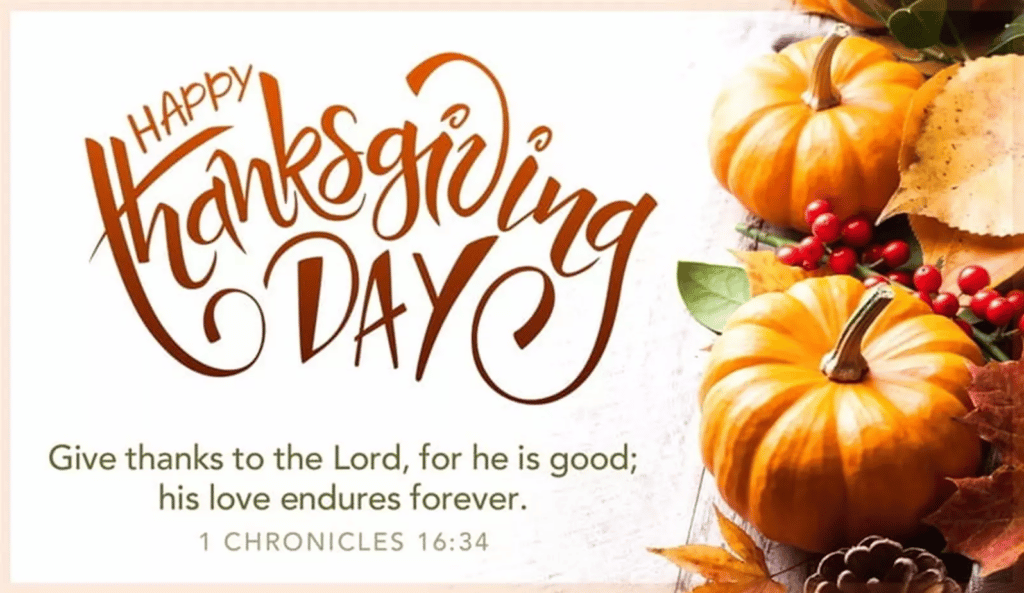First, from our family to yours, happy Thanksgiving. If you do not live in a place that nationally celebrates Thanksgiving, we hope this time helps in finding more gratitude in your faith journey and giving thanks to God and those around you for the many blessings you have received. We know that within “positive psychology research, gratitude is strongly and consistently associated with greater happiness. Gratitude helps people feel more positive emotions, relish good experiences, improve their health, deal with adversity, and build strong relationships.” [Harvard Health Publishing]
We’ve talked previously about how the holidays can be a difficult time for those with mental health, writing about how Christians can manage mental health over the holidays, the worries of addiction during the holidays, how to help loved ones with mental illness over the holidays, and, previously if we weren’t in a pandemic with restrictions looming, ways to find peace and joy over this holiday. Today, we want to discuss ways we can give thanks that integrates mental health and our Christian faith. We suggest you print these off, put them in your calendar, add them to your journaling, and pass them along as gratitude and thanks giving only grows when you do it more and share it with others.

1. Giving Thanks Daily
As of the time of this writing, we have 38 days til the new year. That’s 38 opportunities to make this the most thankful year you’ve ever had. With something as simple as writing a text message every day to someone in your life to give thanks for what they have done for you or to give a new thing you are thankful for to one person who had truly been there for you every day. Search yourself and find what they have done for you, being mindful of all the ways and things they have done. Also, make it intentional in your prayers for thanksgiving daily.
If you are as bad at this as I am, schedule out your text messages. For the next hour, identify those 38 people and schedule a text message to send them on December 17 or November 29 and fill every day. With prayer, write down on a calendar or prayer journal for the next 38 days a new thing to thank God for. But in all things, give thanks.
2. Gratitude Journal
We find that giving thanks in the moment to be one of the best ways to be mindful of all of the things God has done for us and set our hearts and minds on what can be done today. But in times of difficult struggle with anxiety, depression, or trauma, even that task can be hard. Having a journal of thoughts you have done in the recent days and weeks before hand can give you the opportunity when it feels like there is nothing to be grateful for and see all that you have had.
For this, we suggest starting a gratitude journal where every day in your prayer, devotional, and meditation time that you take some time to journal about things you are grateful for. Whether it is a running list or a narrative format of your collective thoughts, have a book solely dedicated to thankfulness. When you can, be unique in what you write so that you are always looking for new things to be thankful for. Do not start it when you are struggling, instead start it now for later. And if you never need it, then you instead spend wonderful minutes before God counting your blessings and finding humility before Him.
3. Serve Others
Different than the first two that look to others who have blessed us, we can also go and bless others. We have found that even the most altruistic actions by you will still promote a sense of thankfulness as well as tend to be moments seared into one’s own memory, creating moment after moment of kindness and thanksgiving. Whether you find a day to serve on one of the big holidays at a soup kitchen, take part in the Adopt-A-Child event or Operation: Shoebox through your church, or find yourself devoting days and weeks through Habitat for Humanity or with your local foster care system, give back.
4. Reflect and Memorize Scripture of Thanksgiving
Whether you tend to struggle memorizing anything or not, spend time in Scripture with verses of thanksgiving. Whether you go through the Psalms which are filled with them and find verses like Psalm 103:1-4 or the many times Paul is giving thanks for the new Church in their efforts to be Christ to all people in all things:
Praise the Lord, my soul;
Psalm 103:1-4 (NIV)
all my inmost being, praise his holy name.
Praise the Lord, my soul,
and forget not all his benefits—
who forgives all your sins
and heals all your diseases,
who redeems your life from the pit
and crowns you with love and compassion,
If you need help, the Internet has a whole list of verses you can go and find to reflect on every morning or evening.
So what do you do with your Thanksgiving that you can promote a sense of gratitude in the busyness of the holiday as well as in the ordinary every day? Leave your comments below.
